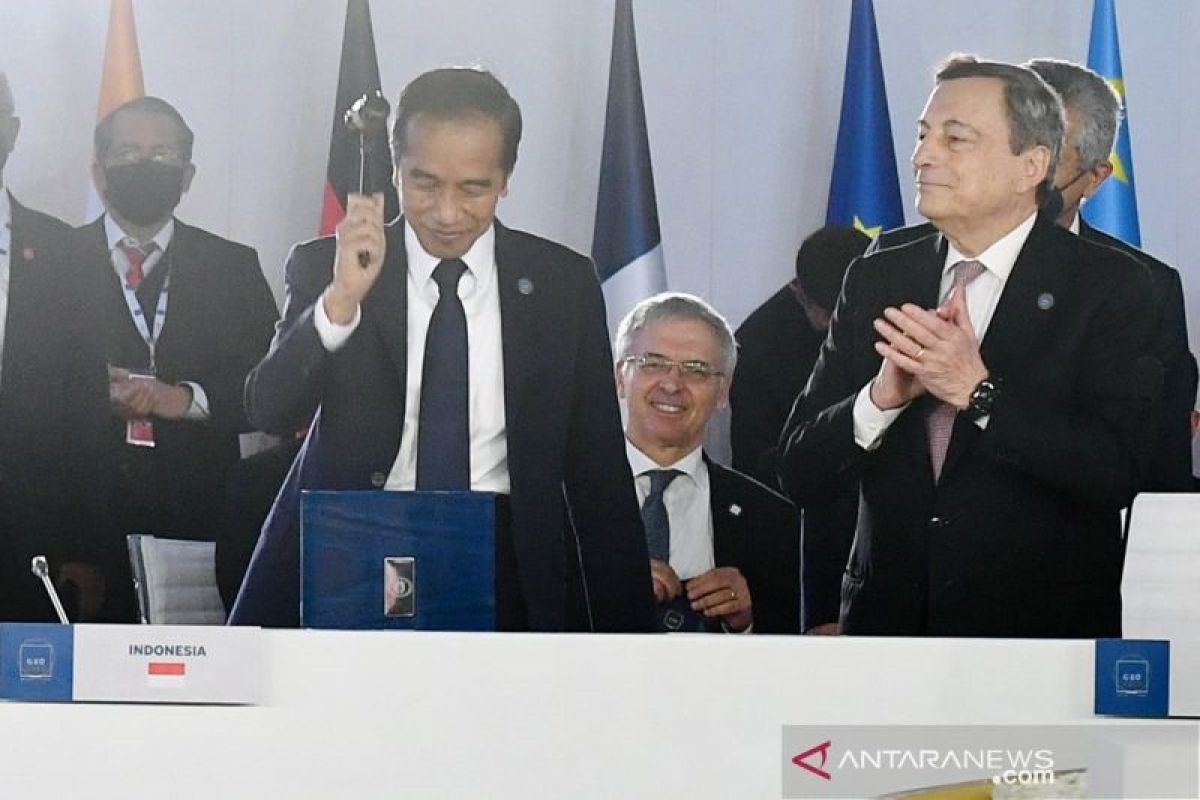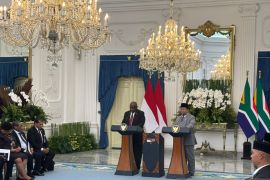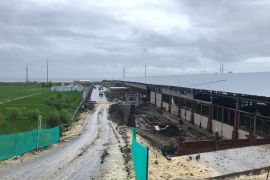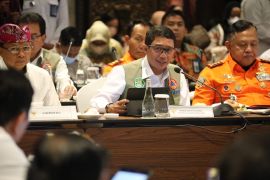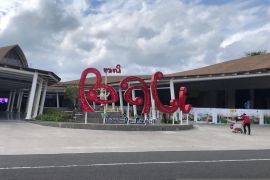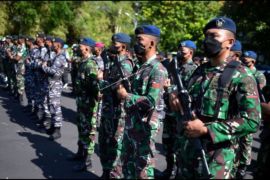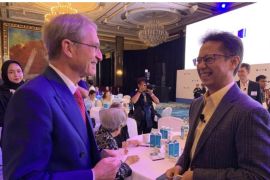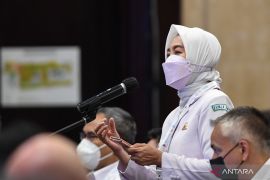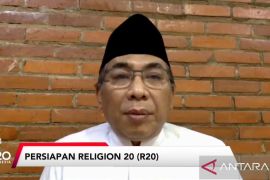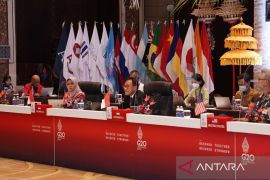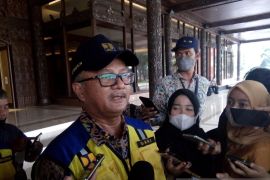The presidency was officially handed over by Italian Prime Minister Mario Draghi to the President of the Republic of Indonesia, Joko Widodo (Jokowi), at the G20 Summit in Rome on October 31, 2021.
The G20 Presidency has come with the world's trust that Indonesia will successfully push several agendas, especially those related to global recovery through concrete efforts and solutions.
Jokowi has emphasized that Indonesia's G20 Presidency should not be merely ceremonial, but must entail concrete action.
Indonesia will continue to encourage countries in the G20 to work toward major breakthroughs as well as collaborate and build strength to ensure that the world can absorb the positive impact of the existing cooperation, he said.
"This trust in holding the G20 is an opportunity for Indonesia to contribute more to the world's economic recovery. Also, to build a healthier, equal, and sustainable world governance, based on independence, peace, and social justice," he remarked.
Themed 'Recover Together, Recover Stronger', Indonesia's G20 Presidency will stress inclusiveness to bring a positive impact to developing countries, he said.
This intention is reflected in the involvement of a small island nation from the Pacific and the Caribbean for the first time in the history of the G20 Presidency, in addition to other developing countries from Africa, ASEAN, and Latin America, he noted.
The Caribbean countries are represented by the leadership of the Caribbean Community (CARICOM), which is currently held by Antigua and Barbuda, while the Pacific countries are represented by Fiji, the leader of the Pacific Islands Forum (PAF).
On a national scale, the Indonesian government wants more people to benefit from the G20 Presidency, especially grassroots groups.
To that end, a number of developing sectors in the community have been identified to be included in the G20 agenda, such as digital economy, women's empowerment, and micro, small, and medium enterprises (MSMEs).
A total of 127 meetings have been scheduled for the G20 and they will not only take place in Bali, but a number of areas so as to involve more people.
Based on a study conducted by the Coordinating Ministry for Economic Affairs in collaboration with the University of Indonesia, Indonesia's Presidency of the G20 will have certain short-term impacts: It is expected to create jobs for 33 thousand people at all meeting locations and boost the national GDP of Rp7.43 trillion. Meanwhile, other economic benefits are expected to rise 1.5 times compared to the 2018 IMF-World Bank Annual Meeting in Bali.
Meanwhile, over the medium and long term, Indonesia's chairmanship of the G20 is expected to lift the tourism sector and accelerate the recovery of the national economy.
In addition, it is also expected to showcase Indonesia's developments in infrastructure, connectivity, and foreign investment as well as attract foreign investment for green economic development and demonstrate Indonesia's vaccination achievement which, the government hopes, will increase global confidence in its handling of the pandemic.
Three main priorities
Foreign Affairs Minister Retno Marsudi has outlined three main priorities for Indonesia's G20 Presidency—building a stronger global health architecture, energy transition, and digital transformation.
Health is a major issue in the fight against the COVID-19 pandemic, she said. Leaders of the G20 countries have agreed to vaccinate 40 percent of their populations by the end of 2021 and 70 percent by mid-2022, she noted.
A healthy population is the foundation of global recovery, she said. In the midst of this pandemic, vaccination is ammunition to emerge from health and economic crises, she added.
"The pandemic has taught us a valuable lesson that health insurance is very important," Marsudi said.
As the current leader of the G20, Indonesia is determined to provide equal access to COVID-19 vaccine procurement, especially to developing countries, the minister said.
Therefore, President Jokowi has stressed the importance of building an inclusive global health architecture on the principles of solidarity, justice, transparency, and equality, she added.
Marsudi said the President has proposed several steps, including first, creating a mechanism to raise global health resources; second, compiling a global health protocol for cross-border activities; third, optimizing the role of the G20 in efforts to address gaps in access to vaccines, medicines, and essential medical devices.
Then, the issue of the energy transition has also been deemed urgent since the G20 members are not only contributing to 80 percent of the world's GDP, but also 80 percent of global greenhouse gas emissions, she said.
A debate was held on the carbon emission reduction target and a schedule was mapped for net-zero emissions at the G20 Summit in Rome, Italy, Marsudi noted.
At the Climate Summit, or COP26, in Glasgow, England, Indonesia committed to achieving carbon neutrality by 2060 or even earlier, she said.
To achieve this ambitious target, the government has formulated a roadmap in accordance with the Long-Term Strategy for Low Carbon and Climate Resilience (LTS-LCCR), she added.
Another issue is digital transformation, which has become a necessity and has been listed in the roadmap for Making Indonesia 4.0, Marsudi said.
Indonesia has also had the opportunity to become the first leader of the Digital Economy Working Group (DEWG) after previously being elevated from task force status during the Italian Presidency in 2021, she noted.
According to Minister of Communications and Informatics Johnny G. Plate, Indonesia's role as the holder of the G20 Presidency can push the digital transformation agenda in Indonesia since digital issues have been closely embedded in various sectors.
"We see that our Presidency of the G20 can push the digital transformation agenda in Indonesia, including advocating for Indonesia's agenda and interests as well as realizing a fair, level playing field between developed and developing countries," Plate said.
The G20 Presidency will also yield benefits for industry sectors and push digital technology innovation in Indonesia, which will serve as a melting pot for industry players and cross-sector regulators to optimize digital technology and showcase its potential, innovation, and creativity in digital technology utilization, he added.
In fact, raising the status of the Digital Economy Task Force (DETF) to DEWG presents more opportunities to Indonesia to become a leader in discussing global digital economy policies, he said.
Meanwhile, an international relations observer from Padjadjaran University, Teuku Rezasyah, noted that Indonesia must build good communication, both inside and outside the country, in order to achieve the goals of the G20.
This means that each ministry and institution as well as stakeholder must synergize and implement bureaucratic transparency, he said.
In addition, Indonesia must be able to convince the G20 member countries through its best practices by mapping the potential that each country wants to explore and share with the world, he added.
“The G20 is not just a project, Indonesia's future is at stake. If the communication does not work, we are considered negligent by other members. Do not let a lack of communication hamper our progress," he asserted.
Rezasyah added that domestically, holding the G20 should involve the community down to the lower levels and even include their issues, such as those pertaining to children, the environment and mangrove plantation, MSME involvement, among others.
“This effort can be done by making at least one district in each province as a reference. All levels of society including the lower class, young people, and children should feel the impact from G20," he added.
Related news: Quarantine policies for officials applied in measured way: Minister
Related news: A look at Indonesia's stance on green recovery
Editor: Rahmad Nasution
Copyright © ANTARA 2021
